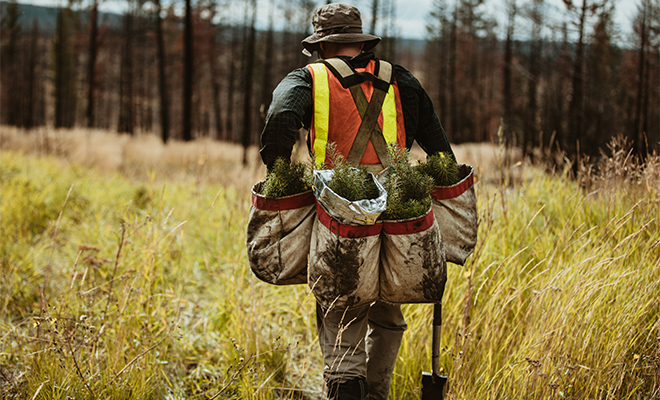Afforestation Plan - Keshav Global industries LTD. (Liberia)
As a tribute to the revered and dearly departed Late Sunil Kumar Garg, our esteemed Chairman Emeritus, we wholeheartedly embrace a profound commitment to driving transformative change. Our noble vision is centered on nurturing the flourishing of 100 Million leaves, achieved through the meticulous cultivation of trees across a vast expanse spanning 125,000 hectares in Liberia.
Human activities contribute to carbon emissions, leading to global warming and climate change, impacting the planet and its inhabitants. To address these profound effects, afforestation emerges as a highly effective solution. Afforestation involves establishing forests in non-forested or previously depleted areas due to human interference. This process can occur naturally over time or artificially through the deliberate planting of trees or seedlings to restore and expand forest cover in targeted regions. By implementing afforestation practices, we can combat the detrimental consequences of climate change and protect the well-being of humanity and the Earth as a whole.

Keshav Global Industries Ltd plan for Afforestation for the year 2023-2026
Considering the aforementioned circumstances, Keshav Global Industries Ltd is preparing to initiate an afforestation project encompassing an initial land coverage of 125,000 hectares. The selected lands for this project are situated in Gbarpolu and Cape Mount Counties. These lands are community-owned by various local communities residing in these areas. While a portion of the land has been utilized by nearby communities for agricultural purposes, the majority of the land remains unoccupied with no ongoing economic activities.
The current situation in the communities entails minimal income generation from the lands, primarily limited to sustainable agricultural activities covering less than 10 hectares. To enable the afforestation project, the community will enter into a long- term lease agreement, with a predetermined land rent per hectare. The revenue generated from this arrangement will be utilized for community development initiatives, including education, healthcare, and sanitation. As part of the afforestation efforts, a well-planned road network will be established, facilitating easy transportation of agricultural produce to the market. This will not only enhance commercial and economic activities in the region but also contribute to the socio- economic development of the area. Additionally, the community will benefit from non- timber forest products and the presence of diverse wildlife, providing a source of sustenance and supporting local food needs. We have initiated discussions with the Forestry Development Authority (FDA), the government institution responsible for forests and afforestation in Liberia, for the implementation of our afforestation project. The FDA has shown great enthusiasm and support for our innovative initiative, as we are the first company to undertake such a project in the forestry sector. The project aims to create employment opportunities for the local community and contribute to the overall development of the project area, facilitated by the establishment of a comprehensive road network. The afforestation efforts will not only enhance the region ecosystem and improve soil quality but also enrich the groundwater table levels. Additionally, the project offers economic advantages as the government can generate revenue from the mature trees for harvesting. The consistent supply of raw materials will also attract timber-based industries, fostering development and economic activities in the region.
Upon comprehensive analysis, it is evident that this project brings substantial benefits to the community, government, and the company involved.

Goals of Afforestation
The goals of afforestation encompass conservation, environmental protection, industrial development, and commercial utilization. Conventional afforestation and reforestation efforts are undertaken to safeguard and preserve ecosystems. These endeavors require careful research and planning to prevent further harm to nature. Afforestation contributes to the conservation of species, providing additional habitats for wildlife. The selection of tree species and the preservation of land are also important aspects of conservation. Trees absorb carbon dioxide, mitigating global warming and climate change. The soil in forested areas acts as a carbon sink, improving soil health and facilitating natural water filtration. Afforestation promotes clean air, wildlife habitat, and a sustainable food source for humans and animals.
Benefits of Afforestation
Afforestation offers a multitude of benefits. Firstly, it helps combat climate change by sequestering carbon dioxide and reducing greenhouse gas emissions. By creating new forests, afforestation enhances biodiversity and conserves endangered species. It also prevents soil erosion, improves soil fertility, and regulates water cycles, leading to sustainable agriculture and water resource management. Afforestation creates economic opportunities through sustainable forestry practices and boosts local economies. Additionally, forests provide recreational spaces and contribute to the overall well-being of individuals. Afforestation plays a vital role in climate adaptation, offering shade and mitigating extreme weather events. In summary, afforestation brings environmental, economic, and social benefits, making it a crucial tool for sustainable development.